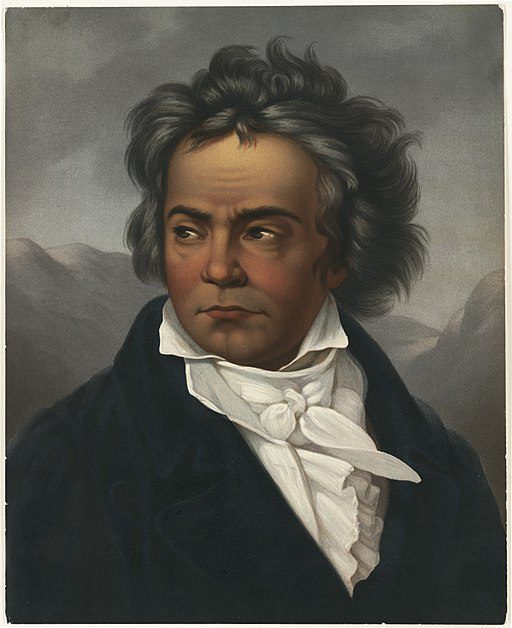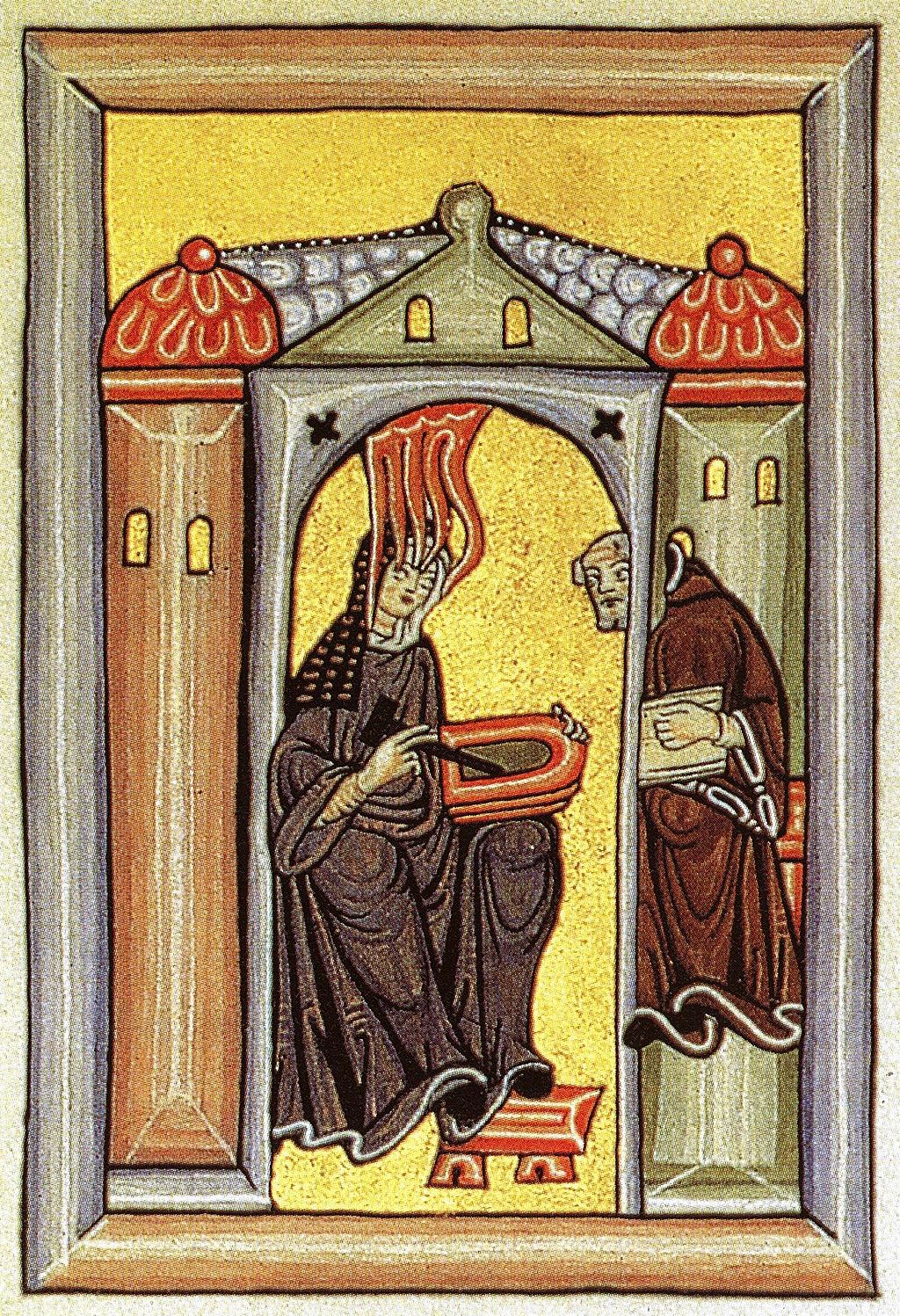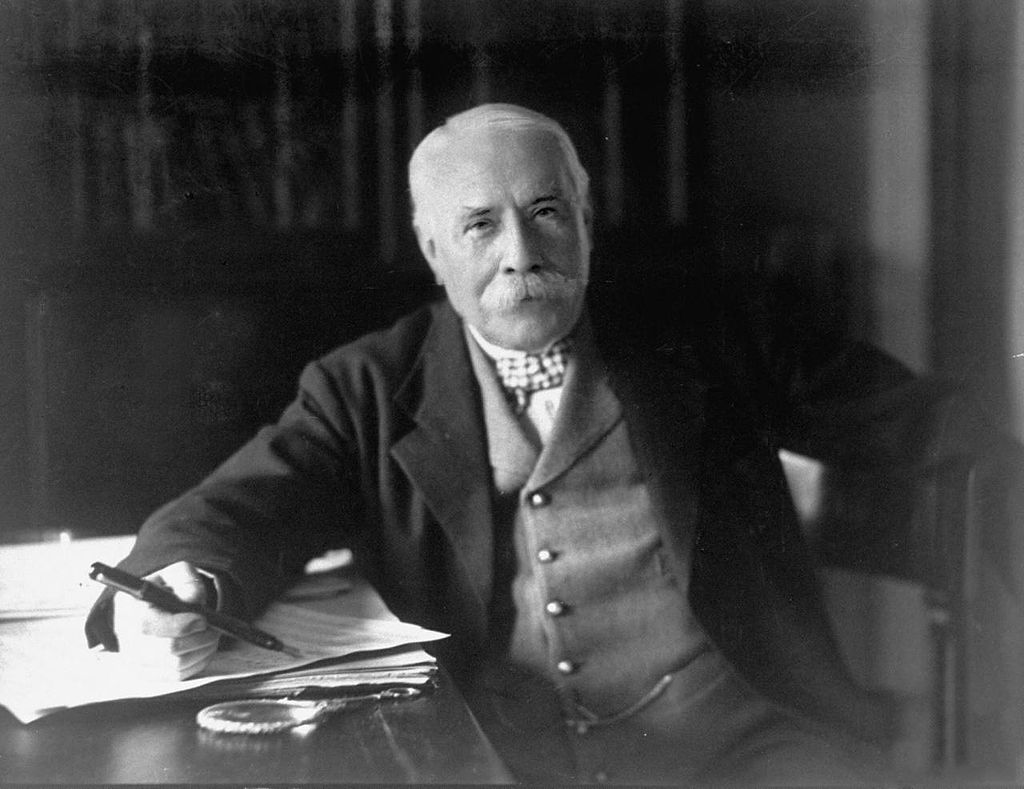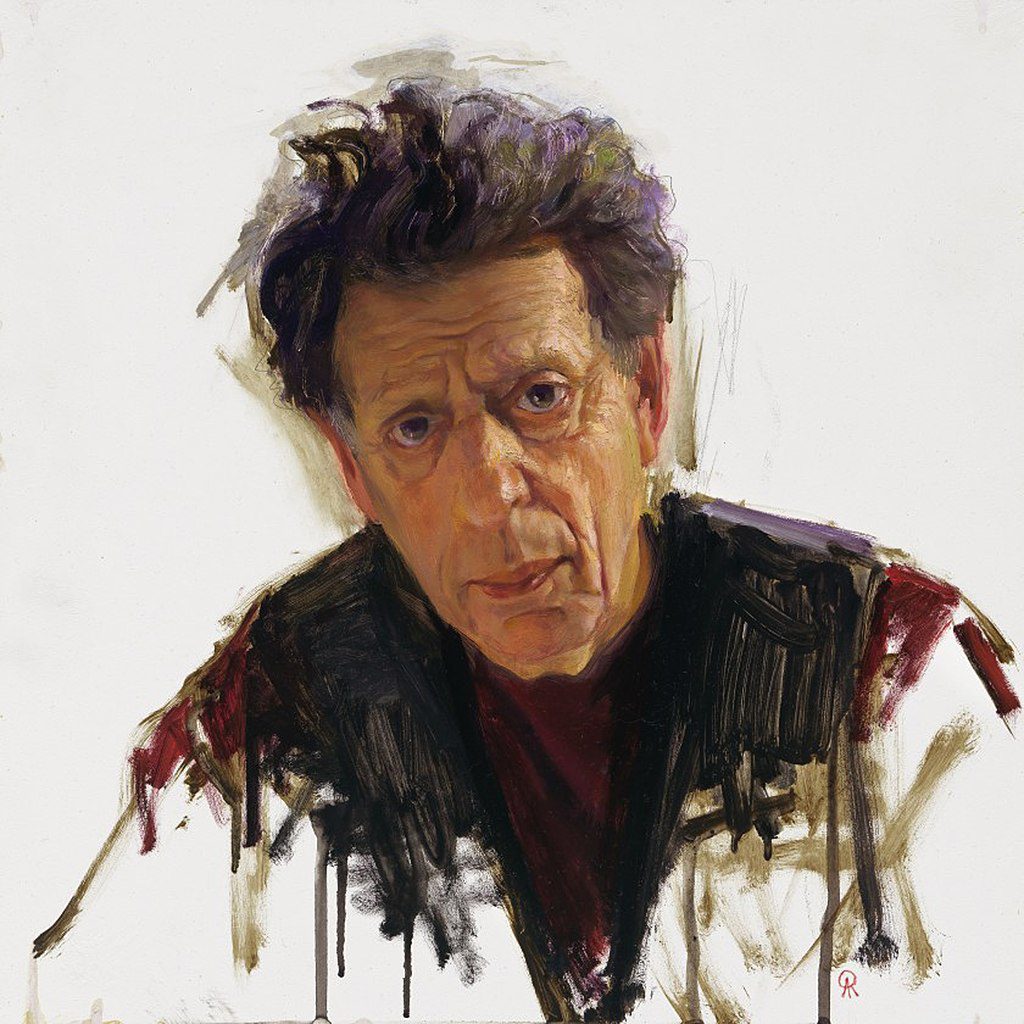
Beethoven by Schimon, Ferdinand from Wikimedia Commons
35 Best Composers Of All Time
Music is therapeutic, and powerful and is a need for many of us. Whenever I am feeling low or simply tired, I tap on my YouTube app and use the playlist that I know will instantly fix my mood. It is through music that people can connect, express emotions and share stories.
Throughout history, composers have contributed to the wide and varied field of music, everyone with their own distinct style, voice, and influence. These 35 best composers of all time changed the world with their classic tunes passed down to the musicians we know and love. These composers created everything from the soaring melodies of Mozart to John Cage’s experimental soundscapes, all of which inspire upcoming generations.
1. Ludwig Van Beethoven
Ludwig Van Beethoven is one of the most famous musicians, he’s known for his compositions, unruly hair and fierce gaze. At the age of 13 Ludwig had already published his first piece, he was heavily inspired by his father who ensured that he got a proper musical education. Ludwig started his life at 21 in Vienna where he established himself as a piano virtuoso and was later employed by royalty to write.
Ludwig has had a significant and long-lasting influence on the evolution of Western classical music through his music, which is known for its emotional depth, inventive harmonic utilisation, and dynamic range. Beethoven’s life was not exactly easy life even with all the fame, as a matter of fact, it was filled with personal challenges with his friends and family. Despite his personal shortcomings, he’s inspired both musicians and listeners for countless generations, his music has served as a constant reminder of the human spirit’s unfailing capacity for innovating and beauty.
2. Johann Sebastian Bach

Bach by Johnhuxley from Wikimedia Commons
The brilliant German composer Johann Sebastian Bach is unmatched in popularity and stature. The majestic sound of the organ performing “Toccata” and “Fugue In D Minor” is already widely recognised, although this just scratches the surface of his vast discography. He is regarded by many as the greatest composer to have ever lived. He is a master of both sacred and secular music, including choral works, and instrumental, and organ compositions.
Bach is recognised as one of the most original composers in Western music history, even though his organ prowess alone propelled his career to great heights. He made an important contribution to the growth of classical music, and his love of counterpoint melodies in his music, together with his contributions to the tonal system, continue to influence the sound of modern music today. The complexity of his arrangements has intrigued philosophers and mathematicians in addition to musicians and music listeners, as best illustrated by Douglas Hofstadter’s 1979 book Goedel, Escher, Bach.
3. Wolfgang Amadeus Mozart
Wolfgang Amadeus Mozart was one of the greatest composers of the classical era, he produced over 800 pieces and was a keyboard and violin prodigy. His talents started shining at the age of 5 when he began composing music at the of age five and made multiple trips to Europe and rose to fame. He then started writing many of his well-known violin concertos after being hired as a musician for the Salzburg court.
At the age of 17 when he was full of ambition he started travelling a lot more and he found himself in Vienna where his main audience was nobilities who were thoroughly entertained by his music. Around this period, he started studying Baroque music more thoroughly, which led to an increase in the intricacy of his pieces. Mozart continued to produce more music for the rest of his life, but he tragically passed away at age 35 from an illness.
4. Hildegard Von Bingen

Hildegard by Wikimedia Commons
If you’ve ever heard of Sibyl of the Rhine then you probably weren’t aware that Hildegard von Bingen was a Benedictine nun who went by this name. She was not just Mother Superior but she was also a writer, composer and mystic who did a lot of religious writings for the Catholic Church.
Hildegard was philosophical by nature and was also interested in theology, these were topics that she wrote a lot about. She was also well-known for her proficiency in herbal medicine and the use of natural cures, both of which she used in her medical practice. The legacy of Hildegard von Bingen endures still exists and her writings continue to motivate and have an impact on today’s musicians.
5. Antonio Vivaldi
Antonio Vivaldi was a violin player, who is remembered as one of the finest Baroque composers. He wrote concertos, choral works, and more than fifty operas, but is best remembered for his “The Four Seasons” cycle of violin concertos. He was the “master of the violin” at a Venetian orphanage where he performed and instructed due to his talent on the violin. It was in this role that he began his successful career as a composer.
When Vivaldi was discovered he was hired by royalties to write music for them, however, like many musicians from that era he endured financial hardships and died in a somewhat low-key manner. The beginning of the 20th century saw a resurgence of interest in his work.
6. Claude Debussy
Claude was labelled as the first impressionist composer even though he disliked the title that didn’t stop him from getting accepted into the prestigious Conservatoire de Paris after demonstrating musical promise as a child, where he studied piano and composition.
A lot of his tutors were not supportive of his experimental approach, and it took him nearly 40 years to achieve fame with his one and only opera, Pelleas and Melisande. His works continue to be cherished today, especially the famous “Clair De Lune,” which keeps making an appearance at the forefront of modern films and television.
8. Claudio Monteverdi
Claudio Monteverdi is credited with creating opera, he was an Italian composer who lived during the Baroque Period. “L’Orfeo” which is regarded as one of the earliest operas is still performed today and is possibly his best work that makes his work recognizable.
He introduced basslines and chord progressions to choir compositions, a sound that came to define the Baroque era and modern music today. His inventive and sometimes controversial work is credited with creating this sound. He is and will always be regarded as one of the greatest composers in the development of classical music during his lifetime.
9. Joseph Haydn
Joseph Haydn is known as the “Father of the String Quartet”, the name was given to the Austrian composer because he heavily influenced the development of chamber music. He spent a lot of time working for rich families such as the Esterhazy family which helped him develop an individual and unique style and sound. In addition to his skill as a composer, he had a lasting impact on the history of music since he directly influenced both Ludwig van Beethoven and Wolfgang Amadeus Mozart.
10. Robert Schumann
Robert must have been full of love because he composed the most romantic music of the 18th century. Schumann is always seen as a key participant in the growth of German musical culture in the 19th century, he also wrote a lot of songs, chamber music, and symphonic works.
His battles with mental illness, however, made his life a hardship, forcing him to stop performing, and finally causing him to pass away at the young age of 46. Schumann is regarded as one of the most significant composers of the Romantic era despite his struggles, and his music is still cherished for its poetry, passion, and love.
11. Pyotr Ilyich Tchaikovsky
From “The Nutcracker” to productions like “Swan Lake” Pyotr left a lasting impression on the field of classical music that we still enjoy up to now. Although there were few options in Russia to study Western composition, he enrolled in the brand-new Saint Petersburg Conservatory, which offered Western musical traditions.
After losing the wealthy donor who had funded his early career, Tchaikovsky fled Russia at a time when his fame was rising across Europe. Emperor Alexander III welcomed him when he returned to Russia, increasing his fame and providing chances. He passed away when he was 53 for an unknown reason.
12. Igor Stravinsky
Russian-born composer Igor Stravinsky lived from 1882 to 1971. He is considered one of the most significant and influential composers of the 20th century, and his works contributed to the development of the modernist movement in classical music. Due to their discordant harmonies, erratic rhythms, and unorthodox forms, Stravinsky’s early pieces, such as “The Firebird” and “The Rite of Spring,” sparked debate and indignation when they were initially performed.
After finishing his ballet compositions, Stravinsky lived in France and the United States, where he continued to write neoclassical music for most of his career before turning to serialism in his latter years. Despite the fact that he wrote in a variety of styles during the course of his career, he is praised for the consistency of his works. Many prominent composers, including Philip Glass, were influenced by his novel rhythmic uses.
13. György Ligeti
György Ligeti was a Hungarian composer who was born in 1923 and died in 2006. His immediate family disappeared in concentration camps during Holocaust which greatly affected his childhood. When he first started training in Budapest, compositions that were not nationalistic were always disapproved which led to Ligeti moving to Austria.
It was in Austria that Ligeti was able to create the iconic soundtrack for 2001: A Space Odyssey, a film by Stanley Kubrick. His work continues to inspire and challenge musicians and listeners alike, and he is now recognised as one of the most notable and influential composers of the 20th century.
14. Gustav Mahler
Gustav Mahler was an Austrian conductor and composer who lived from 1860 to 1911. He is best known for his expansive symphonies, which fused aspects of traditional and Romantic music with cutting-edge techniques and unusual forms. His works usually probed themes of mortality, spirituality, and the human condition. Mahler’s music was profoundly inspired by his own personal experiences, especially the death of his young daughter.
Unfortunately, after Mahler passed away Adolf Hitler’s Nazi Party rose, and Gustav’s music was banned. After the end of WWII gained popularity and there was widespread appreciation without the influence of political factors that had harmed him during his lifetime.
15. Richard Wagner
Richard Wagner was a German composer who lived from 1813 to 1883. His operas, which are among the most famous and divisive works in the history of classical music, are well known. Leitmotifs, or recurring melodic themes, are a distinctive feature of Wagner’s music and help to give the compositions their dramatic coherence and raw emotion. In addition, his operas were recognised for their epic scale, dramatic spectacle, and in-depth exploration of complex philosophical and mythological issues.
Many people are familiar with his famous pieces such as “Ride Of The Valkyries.” During the period of his own life, Wagner was a controversial figure. He was both equally intent on writing as he was on musical composition, a prolific polemicist who did not back down from controversy.
16. Maurice Ravel
Maurice Ravel (1875-1937) was well-known for his unique musical taste and composition, he is remembered for his creative orchestration and harmony techniques. His works span from quiet piano pieces to expansive orchestral compositions which are still played and loved frequently.
Ravel had a talent for arranging music which is how he managed to write music on the piano first. His compositions were popular for being challenging and demanding a high level of talent to play, both for piano and orchestra. He was one of the first composers to recognise the value of recording technology for reaching a wider audience, and as a result, he placed more emphasis on recording his works than most others of his day.
17. Benjamin Britten
One of the influential artists in classical music of the 20th century is the English composer Benjamin Britten. He made a name for himself as a leading composer with his operatic and symphonic compositions, such as his 1945 showpiece “The Young Person’s Guide To The Orchestra.” His operas mostly portrayed an outsider or rebel surviving in a hostile environment; these themes resonated with general audiences and increased the popularity of opera. The only composer to ever gain a life peerage, Britten became Baron Britten near the end of his life.
18. Jean Sibelius
Jean Sibelius was born in 1865, and his revolutionary symphonic compositions have helped shape Finland’s musical identity. He took his inspiration from a variety of works from nature and folklore which he started studying at a young age. During Finland’s war of secession from Russia, his most well-known piece, “Finlandia,” came to represent national pride and resiliency.
His ability to retain a distinctive sound that moved listeners and peers while frustrating critics was aided by his relative isolation from the European music scene in Finland. He’s very famous for his saying “Pay no attention to what the critics say. A statue has never been erected in honour of a critic.”
19. Edward Elgar

Edward Elgar by Herbert Lambert from Wikimedia Commons
Englishman Edward Elgar is one of Britain’s most renowned composers and is best known for his “Pomp and Circumstance Marches.” He was self-taught, unlike his peers who had conservatoire training. He did not become well-known as a classical composer until he was in his forties, and wider popularity came in the following ten years, at a time when social nobility was all but required.
He was named Master of the King’s Music in 1924. His music has sometimes been described as being distinctly British. Many of his compositions are commonly performed by orchestras all over the world thanks to re-recordings of his work that took place in the latter 20th century, which increased his exposure to the public.
20. Olivier Messiaen
Born in France in 1908, Olivier Messiaen worked as a composer, organist, and ornithologist. He is famous for his original and profoundly spiritual compositions, which were influenced by his Catholicism and his love of nature. His use of intricate rhythms, vibrant harmonies, and unusual harmonic scales defined Messiaen’s compositions.
A large portion of Messiaen’s compositional work was influenced by his synesthesia, which allowed him to see colours connected to musical chords. When he travelled, he would look at different landscapes for inspiration, like the red canyons and arches of Utah. In his composition, he also incorporated international musical genres like Japanese and Indonesian folk music. In addition, he was a renowned naturalist who recorded bird songs and used them as inspiration for his works.
21. Richard Strauss
German composer, pianist and violinist Richard Strauss was known for his romantic music. He had an eight-decade-long career as a composer which started at the age of 6. The two poems that made him well-known were poems like “Don Juan” and operas like “Salome”.
Strauss was also a controversial figure as he was closely associated with the Nazi German state right as the head of the music department. History has demonstrated that he chose the position for valid reasons. His compositions are still in high demand and are still used in orchestral and operatic music today.
22. Franz Schubert

Franz Schubert by Vienna Museum from Wikimedia Commons
Franz Schubert was an Austrian composer, who played a significant role in the change from the Classical to the Romantic era. Although he didn’t live past the age of 30, he left behind a sizable body of work, which included over 600 secular choral works, seven symphonies, numerous operas, and numerous piano and chamber compositions. It was noted that from a very young age, Antonio had outstanding talent because of this his family members supported him with piano and violin lessons. Before starting to study composition with Antonio Salieri, he would first get a performing degree at a conservatoire.
Since music came to Antonio naturally, he spent very little time producing music. Although he only performed his own works once throughout his lifetime, he was quite popular in Vienna. At the age of 31, he passed away not long after this performance. Famous musicians like Johannes Brahms, Felix Mendelssohn, and Robert Schumann discovered Schubert’s compositions decades after his death.
23.Camille Saint-Saëns
Camille Saint-Saens is another musical genius who started writing music at an early age and went on to become one of the most active composers of his era. Saint-Saens was not just a French pianist and composer but he was a master of a wide range of musical styles that included chamber music, opera and symphonies.
Although a master of many, he was mainly recognized for his piano skills and his capacity to confidently get into different styles and compositions. He wasn’t the kind of guy who sought out fame instead, he preferred that his music spoke for itself. His well-loved works, including “Samson and Delilah” and “The Carnival of the Animals,” continue to carry on his legacy today.
24. Frédéric Chopin
The 19th century was lucky to experience Frédéric Chopin who was a Polish pianist and composer. Throughout the Romantic period, he was regarded as one of the most powerful and influential composers. Chopin’s work was known for its expressiveness and poetry. His compositions, such as the well-known nocturnes, waltzes, and études, continue to enthral listeners all around the world with their beauty and complexity. The unusual nature of Chopin’s personal life, which included his romance with George Sand, was another well-known aspect of him.
Though he lived a rather short life and passed away at the age of 39, his work without a doubt had a heavy impact on classical music, and his legacy still motivates performers and music lovers today.
25. Béla Bartók
Béla Bartók was a Hungarian composer, pianist and ethnomusicologist who was active in the early 20th century. He is remembered for his creative approach to composing, fusing conventional folk music with contemporary methods. Bartók was committed to learning about the music of his own Hungary as well as other countries.
Along with being a skilled pianist, he was a great performer throughout his career. Along with creating music, Bartók was a devoted folk music collector who travelled to the Balkans and other places to capture local songs and dances. His work as an ethnomusicologist has had a long-lasting influence on the discipline, and his works are nonetheless praised for their unique style and imaginative vision
26. Dmitri Shostakovich
Dmitri was known as one of the greatest composers of the 20th century, the launch of his “Symphony No. 1” in 1926 not only made him famous but occasionally got him into a lot of trouble.
Despite the fact that he spent the majority of his career avoiding the Soviet authorities, they also lavishly honoured him for his superior compositional abilities. Along with a sizable corpus of the chamber and solo piano compositions, his body of work also consists of six concertos, fifteen symphonies, and other works.
27. Kaija Saariaho
Several reviewers believe Finnish-born composer Kaija Saariaho agreed that Kaija has been one of the best composers that ever lived. Her education began at the Sibelius Academy, and she later relocated to Germany to pursue her studies. She became irritated with the severe serialism she was being taught since it was so rigid. She found her intellectual home when she learned about the school of spectralism.
Saariaho was a master in focusing on the slow transitions of “masses of sound” in her compositions, which generally combine electronic technology with live performances. She has talked about having synesthesia, which influences how she uses texture in her work, and her work frequently has visual notions accompanying it.
28. Johannes Brahms
A key personality of the Romantic era was the German pianist, conductor, and composer Johannes Brahms. He has been grouped with the other two notable composers Bach and Beethoven. Although Brahms’ works were inspired by earlier pieces from the Classical era, his contemporaries saw him as a pioneer.
Johannes worked as a musician and conductor for the majority of his life, attempting in vain to land lucrative jobs that would solidify his status as a top composer but to no avail. He became famous around the world because of his “Symphony No. 1” in 1876, and the symphonies that followed were well regarded. He is regarded as one of the finest composers to have ever lived, with contributions ranging from advances in classical composition to his work producing folk music, such as the “Hungarian Dances.”
29. Steve Reich
Steve Reich, an American composer, is best known for his contributions to the minimalist musical movement. His method marked a complete rejection of Western musical traditions, in contrast to many others on this list. Similar to how a painter or an architect might make decisions that disclose to a witness the process by which an object was made, his emphasis was on creating music where one can hear the process by which the music was created.
Steve paid more attention to phase shifting, a technique that modifies a musical theme subtly yet noticeably so the listener can hear the change. His 1978 release of “Music For 18 Musicians” contributed to the development of minimalism as a school of composing theory. Reich’s influence has spread to composers of all stripes, including electronic legends like Brian Eno and singers like Sufjan Stevens.
30. Ralph Vaughan Williams
English composer Ralph Vaughan Williams is well-known for his compositions from the late 19th and early 20th centuries. He is remembered for his contributions to classical music, especially in the fields of choral and symphonic music, and many of his pieces are influenced by his passion for English folk music. “The Lark Ascending”, “Fantasia on a Theme by Thomas Tallis”, and his nine symphonies are some of his most well-known works.
31. Amy Beach
The late 19th and early 20th centuries saw the rise to prominence of American composer and pianist Amy Beach. Beach was the first American woman to write a symphony and to have her compositions performed by important orchestras, all of which she did in defiance of the societal expectations of the day. She also had a very successful music career. She often drew on her experiences as a mother and as a woman in her works, which were marked by their Romantic flair.
Beach was a skilled pianist who gave several performances in Europe and the United States. Her contributions as a trailblazing composer and performer have paved the way for future generations of female musicians, and her works are still praised and studied today.
32. Felix Mendelssohn
One of the most prolific and gifted composers of the early Romantic era was the German pianist, organist, and conductor Felix Mendelssohn. In addition to writing music for Shakespeare’s “Midsummer Night’s Dream,” he also composed symphonies, chamber music, piano and organic pieces, concertos, and other works.
Mendelssohn was not only a talented composer but a brilliant conductor as well. In his well-known rendition of the St. Matthew Passion, he contributed to the revival of J.S. Bach’s music. The Romantic period was shaped by his contributions to music, and musicians are still inspired by and influenced by him today.
33. Antonin Dvořák
Romantic-era Czech composer Antonin Dvoák’s works are cherished mainstays of classical music. He is recognised for successfully incorporating Bohemian folk melodies and rhythms into his works. His Symphony No. 9, also called the “New World Symphony,” and his Cello Concerto in B minor are two of his best-known compositions. He was unknown until 1875 when he submitted a substantial work for the Austrian State Prize.
Along with being a composer, Dvoák was a significant music teacher who oversaw the National Conservatory of Music in New York City for a while. His reputation as a composer and instructor continues to motivate artists everywhere, and his pieces are still well-liked and widely practised today.
34. Sergei Rachmaninov
Russian-born Sergei Rachmaninov, who is regarded as one of the best pianists to have ever lived, is also regarded as one of the last truly great Romantic composers. He started playing the piano at the age of four and rapidly showed a great gift for composition and performing. His first symphony’s premier performance, nevertheless, was so poor that he withdrew and stopped writing for several years.
Although Rachmaninov encountered a lot of difficulties during his life, such as the Russian Revolution and his final relocation to the United States, his work has remained well-liked and noteworthy and his reputation has remained to be one of the finest composers of the 20th century is still honoured today.
35. Philip Glass

Philip Glass by Alvarezroure from Wikimedia Commons
Philip Glass is an American composer regarded as one of the most important figures in music of the latter 20th century. The shifting and phasing sound layers in his compositions are produced by repeating patterns. His work would include concertos, chamber music, fourteen symphonies, fifteen operas, and other compositions. He has also written cinematic compositions that garnered him three Academy Award nominations.
Glass has also worked with a variety of performers, including David Bowie and Yo-Yo Ma, and his influence can be heard in the compositions of many modern composers. Musicians all over the world are still challenged by and inspired by his legacy as a minimalist music pioneer.
These are the greatest minds that contributed to what music really has been, we’re lucky to live in a time where we’re able to explore technology with no limitations. However, the real test of time is being able to create, inspire and start a new thing which every single person on this list has given to us, we hope that by reading about these inspiring composers, that you’ll give them a listen too and if you’re a musician, you should certainly challenge your musical abilities just like these men and women did.
Planning a trip to Paris ? Get ready !
These are Amazon’s best-selling travel products that you may need for coming to Paris.
Bookstore
- The best travel book : Rick Steves – Paris 2023 – Learn more here
- Fodor’s Paris 2024 – Learn more here
Travel Gear
- Venture Pal Lightweight Backpack – Learn more here
- Samsonite Winfield 2 28″ Luggage – Learn more here
- Swig Savvy’s Stainless Steel Insulated Water Bottle – Learn more here
Check Amazon’s best-seller list for the most popular travel accessories. We sometimes read this list just to find out what new travel products people are buying.










